Special Report
30 Ways You Should Start Planning Your Thanksgiving Right Now
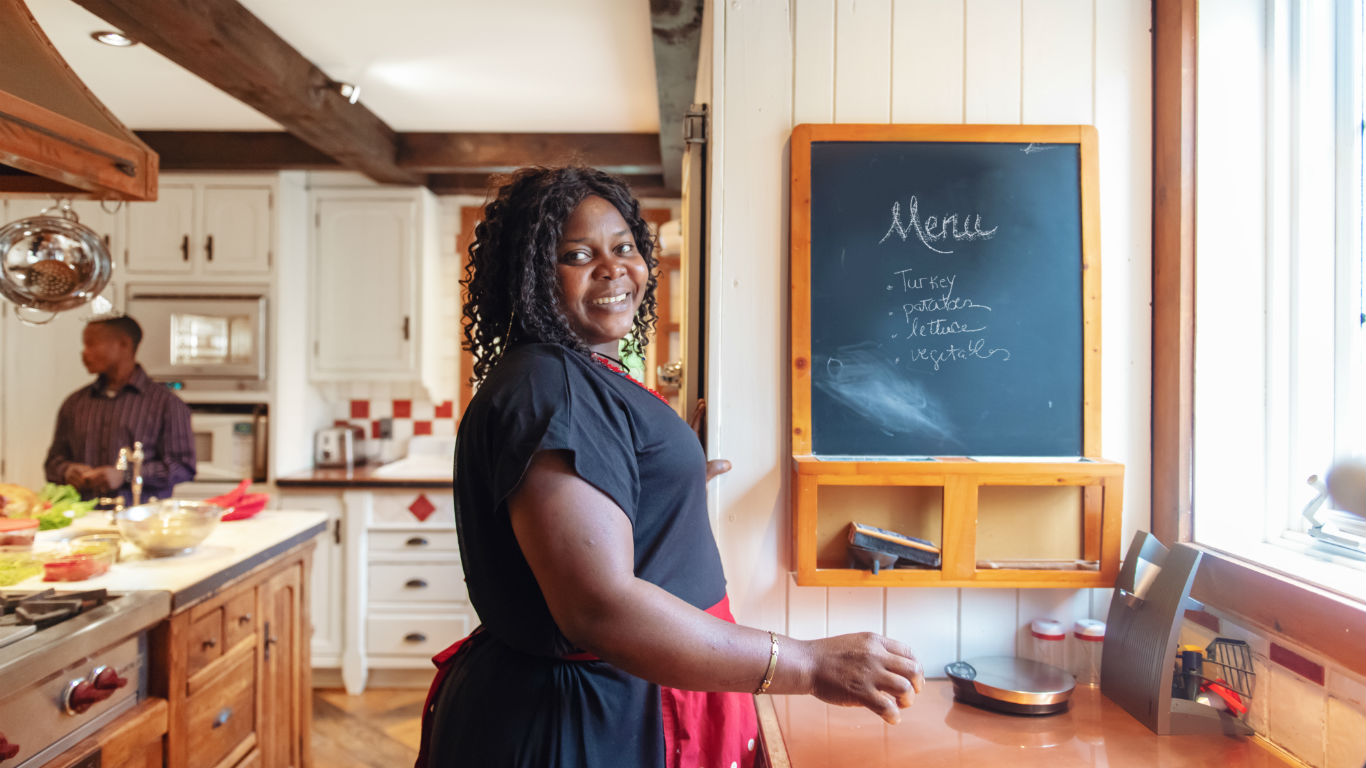
Published:
Last Updated:

It seems like it was only yesterday that we were shaking beach sand out of our shoes, grilling burgers in the backyard, and complaining about the humidity. Now, all of a sudden, there’s a chill in the air and it’s almost Thanksgiving — the quintessential autumn holiday.
Things move quickly this time of year. The number of festivities in store between Oct. 31 and Jan. 1 somehow seem to speed up the clock, and suddenly we realize that turkey day is less than a month away.
If you’re planning on hosting a holiday feast this year, it has probably already occurred to you that you need to make a checklist, and then start planning a menu and shopping at least a week ahead of time. Thanksgiving is the most important American food holiday of the year and the logistics can be formidable, so the less you leave to the last minute the better.
Choosing a turkey and figuring out how to cook it is the first order of business for many Thanksgiving hosts. But there are many other details that need to be attended to, because hosting a large group on a significant occasion is a challenging task. Here are 14 mistakes to avoid when throwing a holiday party.
The first steps in the process can be as creative as planning a menu, perhaps adding some new dishes to the traditional ones (and testing them first, of course), or as prosaic as drawing up a budget. This is important: The price tag of a full-scale Thanksgiving feast has hovered between $40 and $50 per person (adjusted for inflation) for decades, and that’s not counting drinks, decorations, or your valuable time. (Take a look at the cost of a Thanksgiving dinner the year you were born.)
Click here for 30 ways you should start planning your Thanksgiving right now.
You don’t need to tackle everything at once, of course. But if you begin working your way through these chores in the next week or two, you can space them out and proceed at your own pace. When the holiday countdown starts in earnest, you’ll be happy that you got a head start.

1. Create a timeline
Now’s the time to sit down calmly, long before the last-minute preparations begin and panic threatens to set in, and write down everything you have to do to ensure that your Thanksgiving dinner is a success. Start with the recommendations in this story, and then, as the big day nears, fill in the last-minute activities — like making and refrigerating casseroles, cleaning and trimming vegetables, thawing the turkey if necessary (this takes time — about a day in the refrigerator for every four pounds of bird), brining the turkey (if your recipe calls for it), etc.
[in-text-ad]

2. Make a guest list
Everything — from menu, size of turkey, number of plates and glasses needed, seating chart, etc — stems from how many people you’ll be serving. It’s always nice to be a little flexible in case you want to add a last-minute guest or two (or in case somebody drops out — flu season will have already begun by late November), but you should get the basic roster finished as soon as possible.

3. Send out invitations or save-the-date notices
Thanksgiving in the U.S. always falls on the fourth Thursday of November — but that can mean anywhere from the 22nd to the 28th (as it is in 2019), so reminding your guests of the date is always helpful (and telling them what time to arrive is essential). If you want to take the trouble, an e-vite or even a paper invitation sent by mail is always nice — but even an informal email is sufficient to let your intended guests know that they’re invited to your place for the holiday feast and when to come. And with not much more than a month to go before the holiday, it’s fine to ask for a firm RSVP now.
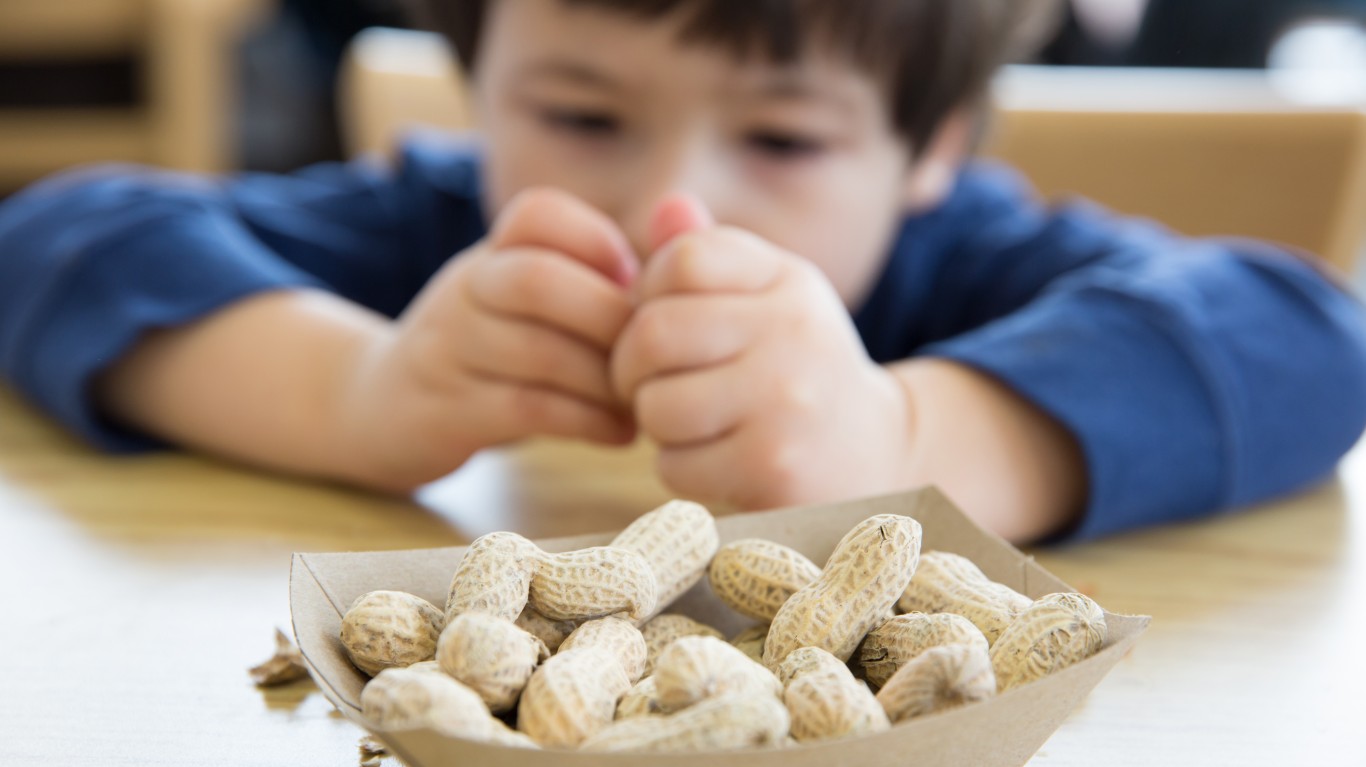
4. Confirm food allergies or aversions
Once you know who’s coming to the table, ask your guests if they have any food allergies or strong aversions. True allergies are serious business; you don’t want the EMTs arriving suddenly as unexpected guests. The gluten intolerant can generally do just fine at Thanksgiving by simply avoiding the stuffing (and parts of the turkey it may have touched) and the rolls. Vegetarians and vegans can usually find plenty of acceptable side dishes to fill them up (you can always make a separate bowl of mashed potatoes and serve it with a cruet of good olive oil instead of butter or gravy). If there are enough non-meat or non-animal-product eaters coming, consider a tofu-based turkey substitute for them. If somebody just plain doesn’t like something you’re planning to serve — Brussels sprouts, jellied cranberry sauce — they can simply avoid it. It’s always good to know what the parameters are ahead of time, though.
[in-text-ad-2]

5. Make a seating chart
If you have a large group of family and/or friends, especially if many of them see each other only once a year, this can be tricky, but it’s important. Don’t let people sit just anywhere, unless it’s a smallish group and you know that everybody gets along. Long, large dinners, especially when alcohol is involved, can get contentious, and it’s best to keep potential antagonists apart. Put your Bernie Sanders-supporting grandmother and your cousin with the MAGA hat at opposite ends of the table, for instance (but on the same side, so they can’t easily see each other). And keep your uncle with the bawdy sense of humor away from the kids. (Speaking of the kids, if there are several of them and they’re not old enough to sit politely at the table with grownups, make sure there’s a children’s table — possibly in an adjacent room.)

6. Coordinate travel plans
If you’ve got family members coming from out of town, make sure they have their airline (or bus or train) tickets and a place to stay and that they have a way to get from their arrival site or hotel to your house. They’re presumably capable of taking care of these details themselves, but a good host always makes sure.
[in-text-ad]
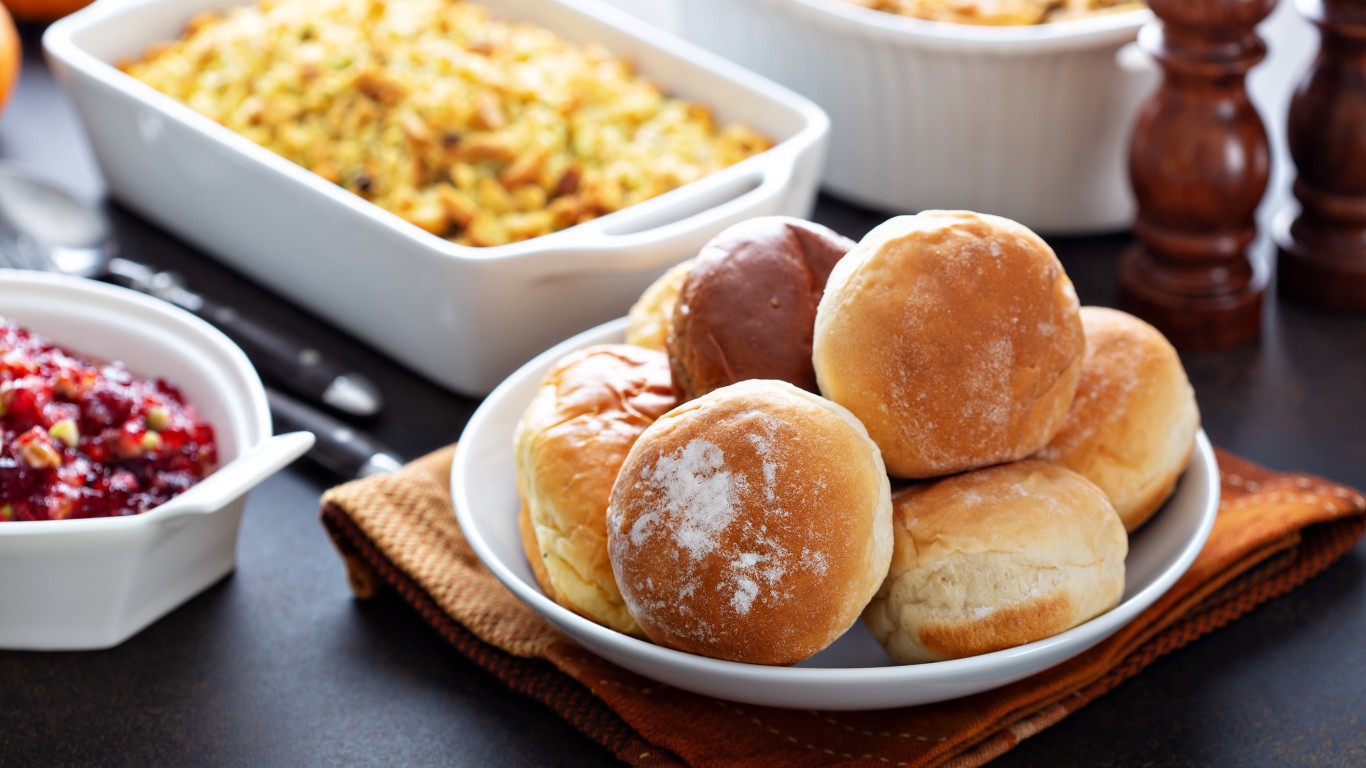
7. Plan the menu
Once you know how many people are coming to dinner and their dietary restrictions, it’s time to decide what you’re going to serve. That usually means turkey, but there are alternatives, including goose, duck, capon, and even vegan Tofurkey. There are some side dishes that almost everybody seems to expect, like mashed potatoes, cranberry sauce, and stuffing, but beyond that, the host has considerable leeway. Brussels sprouts, candied yams (which are actually sweet potatoes), green bean casserole, peas with pearl onions, creamed spinach, mac and cheese, corn pudding, glazed carrots… The possibilities are endless. Choose what you like and offer a good variety of sides, but don’t overdo it.

8. Make a budget
Now that you know how many people are coming to dinner and what you’d like to serve, figure out how much you can afford to spend on the occasion. Estimate food costs, remembering the beverages (alcoholic and otherwise), and factor in fresh flowers and/or seasonal decorations as well as any rentals you may need (see below). You want to have plenty of food and give your guests a memorable repast, but remember that Christmas is just around the corner, so don’t spend more than you should.

9. Research recipes
Once you know what you’d like to prepare and how much you can spend on it, look online, in cooking magazines, or on your cookbook shelf and compare various ways of producing each dish. Look for ease of preparation as well as cost.
[in-text-ad-2]

10. Try out anything you haven’t made before
One of the most basic rules of giving dinner parties is: Don’t experiment on your guests. In other words, don’t make something you haven’t made before, unless you’re a very accomplished cook. You don’t have to preview the whole meal (you can probably skip testing the turkey, for instance), but if you plan to serve new dishes, or make familiar ones in new ways, test them first.

11. Calculate how large a bird you’ll need
There’s plenty of guidance for this task online, but as a general rule, once you know more or less how many guests you’ll have, figure about 1½ pounds per person if you want leftovers (and who doesn’t want Thanksgiving leftovers?). If you’re serving eight, for instance, a 12-pound turkey would be perfect. If you don’t care about leftovers, about a pound per person should be sufficient (remember that a lot of the weight is bone), though for birds weighing more than 16 pounds, a little less would be okay, as larger turkeys tend to have a higher meat-to-bone ratio.
[in-text-ad]
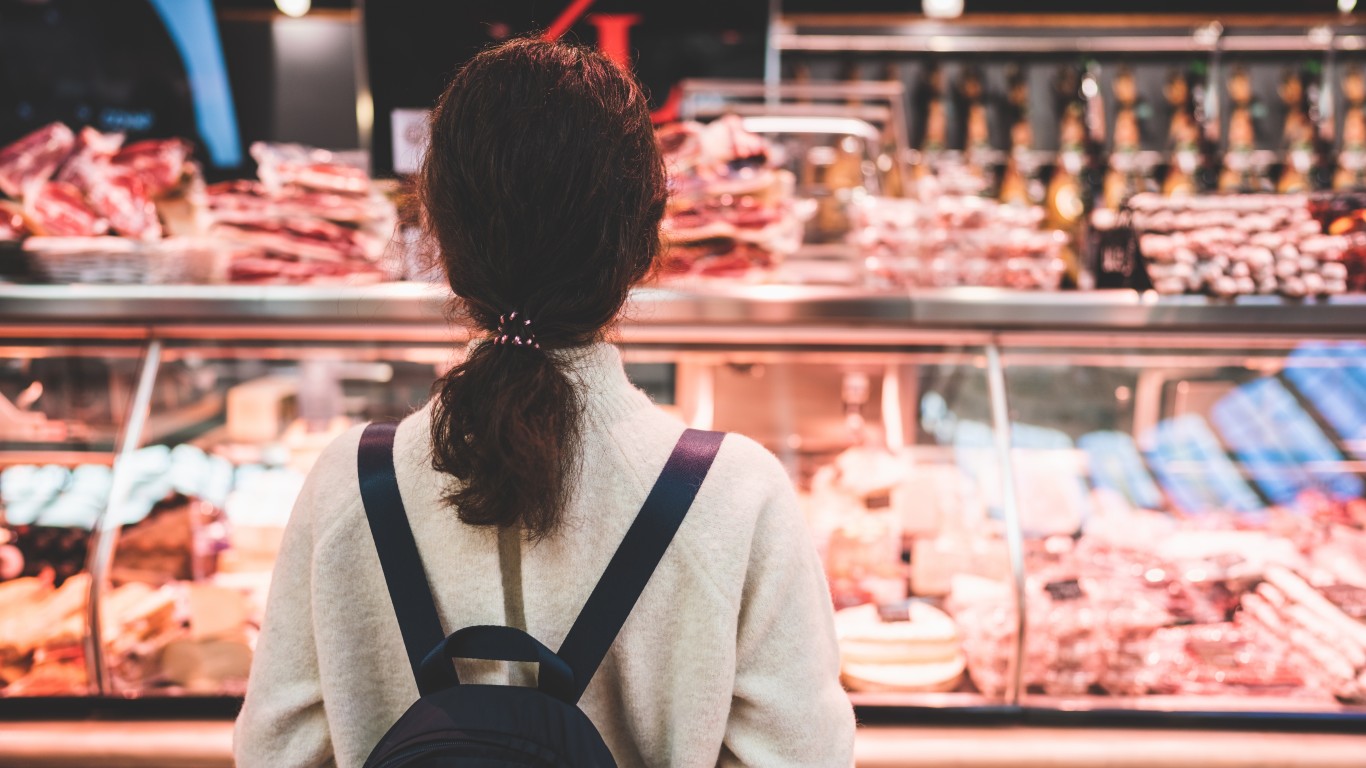
12. Pre-order your bird
This is essential if you want to serve a specialty turkey — a free-range organic one or a wild turkey, or some other fowl that you won’t find at the local supermarket. But even at the supermarket, it’s a good idea to put your name in ahead of time, especially if you want a turkey that hasn’t been frozen.
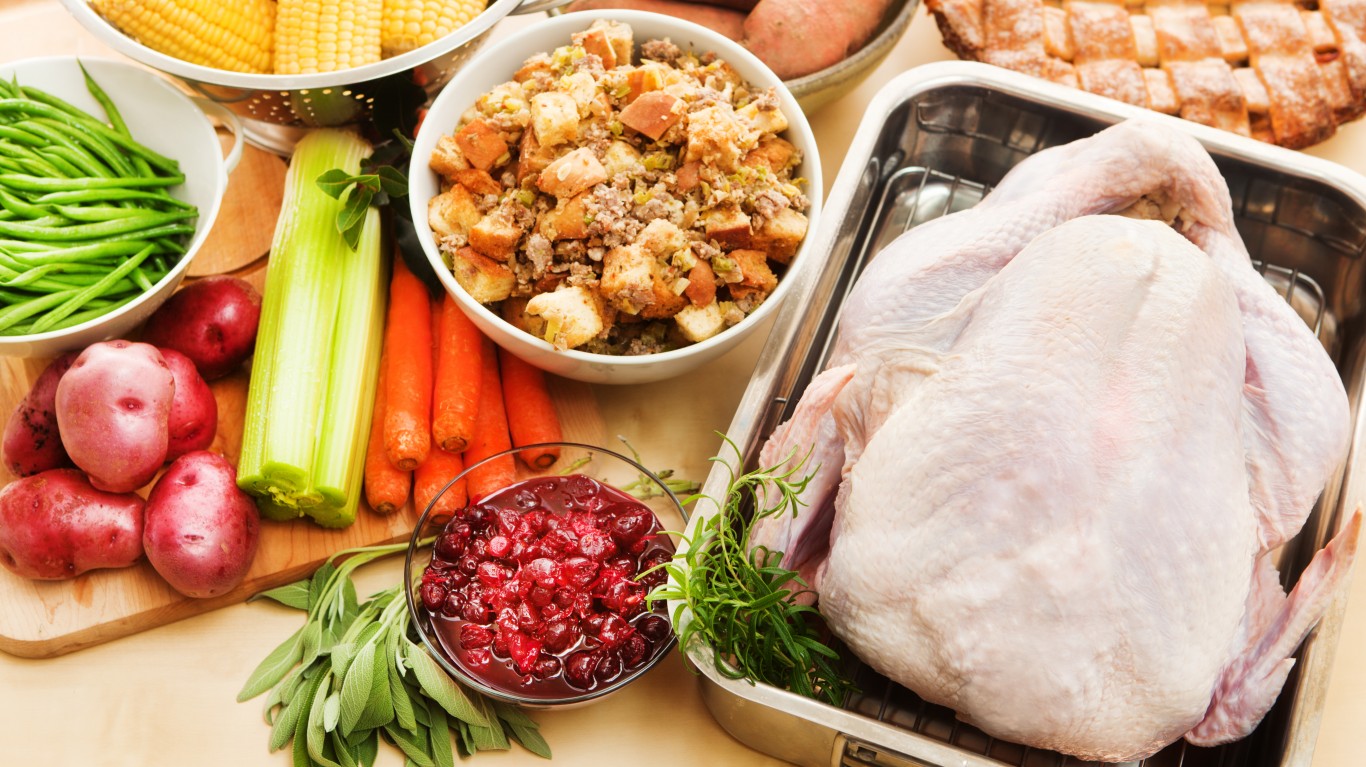
13. Make sure your roasting pan is big enough for your turkey
When you pre-order your bird, ask for its approximate dimensions. If you’re buying a frozen supermarket one, ask someone at the meat counter for its length, width, and height — or don’t be shy about taking a tape measure into the market and figuring it out yourself. Once you know how big it is, make sure that you have a roasting pan large enough to hold it comfortably. Trust us: This is important.
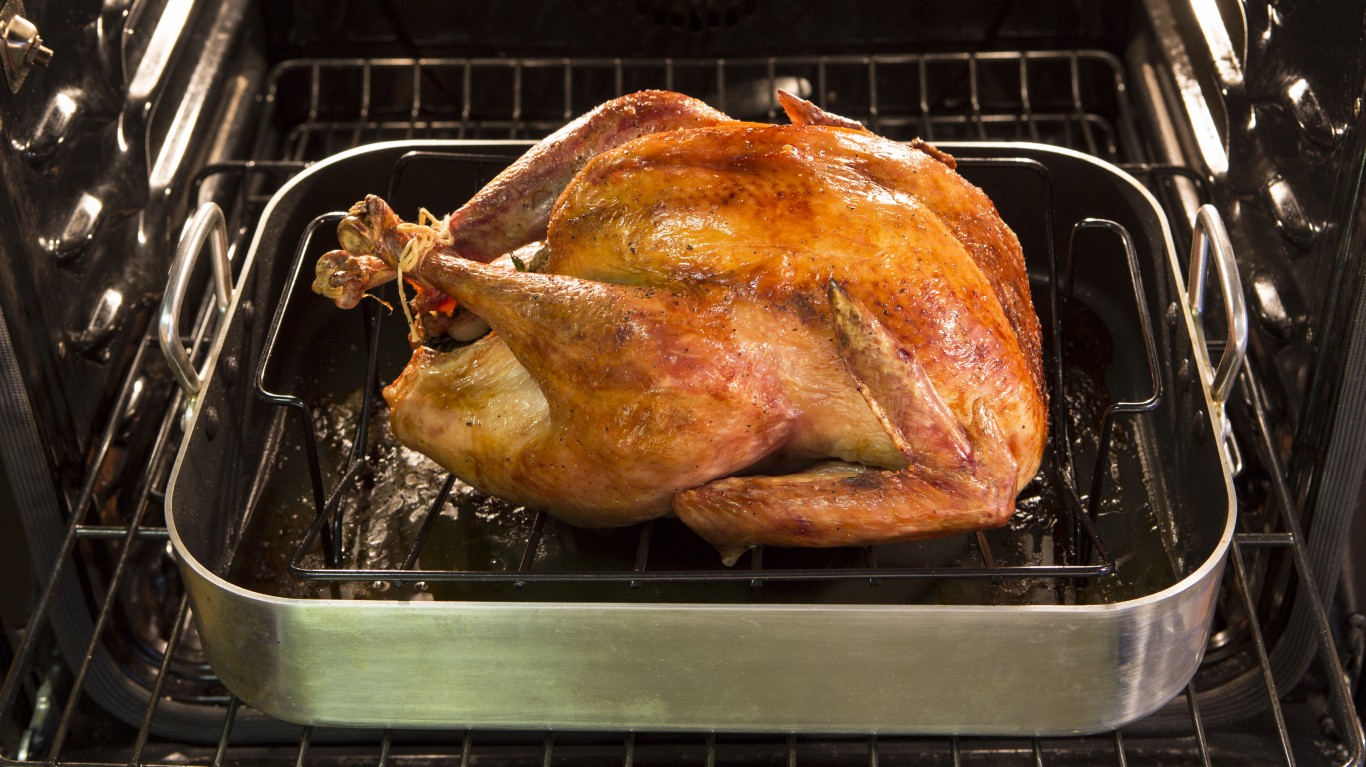
14. Make sure your roasting pan fits in your oven with a turkey in it
If you’ve bought or borrowed a large roasting pan for the occasion, make sure you can fit it into the oven and close the door, paying attention to the height of the bird as well as its other dimensions. Roasting a turkey with the oven door ajar will propel the expected cooking time into unknown territory.
[in-text-ad-2]

15. Make sure you have the right pots, pans, and baking dishes
It’s not just the roasting pan. You’ll want a pot big enough to boil all those spuds for the mashed potatoes, and enough large skillets, casserole dishes, and other vessels, too.

16. Pre-order any specialty foods you might want
If your menu is conventional, you won’t have to worry about this step. But if you plan to offer Spanish ham as an appetizer, put porcini mushrooms into the dressing or gravy, stuff truffles under the turkey skin, present exotic chutneys alongside the cranberry sauce, or otherwise fancy up the banquet, it’s safest to order your unusual ingredients ahead of time at a good specialty food store nearby or online.
[in-text-ad]

17. Start a shopping list for everything else
“Start” is the operative word here because you’ll likely keep thinking of things as the days go by, but now that you have your menu figured out, write down a preliminary list of all the ordinary ingredients you think you’ll need. Keep it somewhere handy so you can add to it as other items and ingredients occur to you.
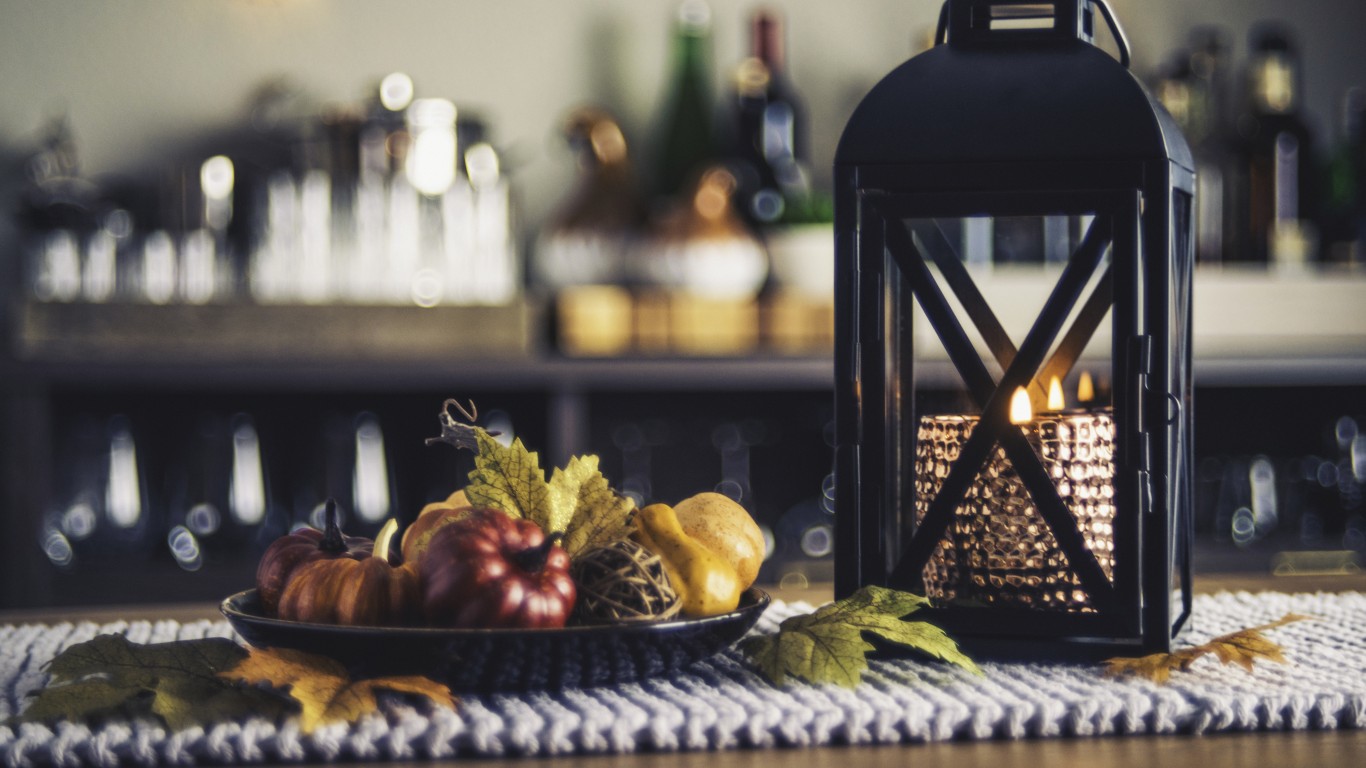
18. Start thinking about decorations
For some hosts, a vase of flowers and a few candles are decoration enough — and some don’t even bother with that. If you plan to get a little more elaborate — branches laden with brightly hued leaves on the sideboard; a cornucopia full of autumn fruits in the middle of the table; a seasonal wreath of the door; or whatever — now’s the time to start deciding what you want and where you’re going to get it.
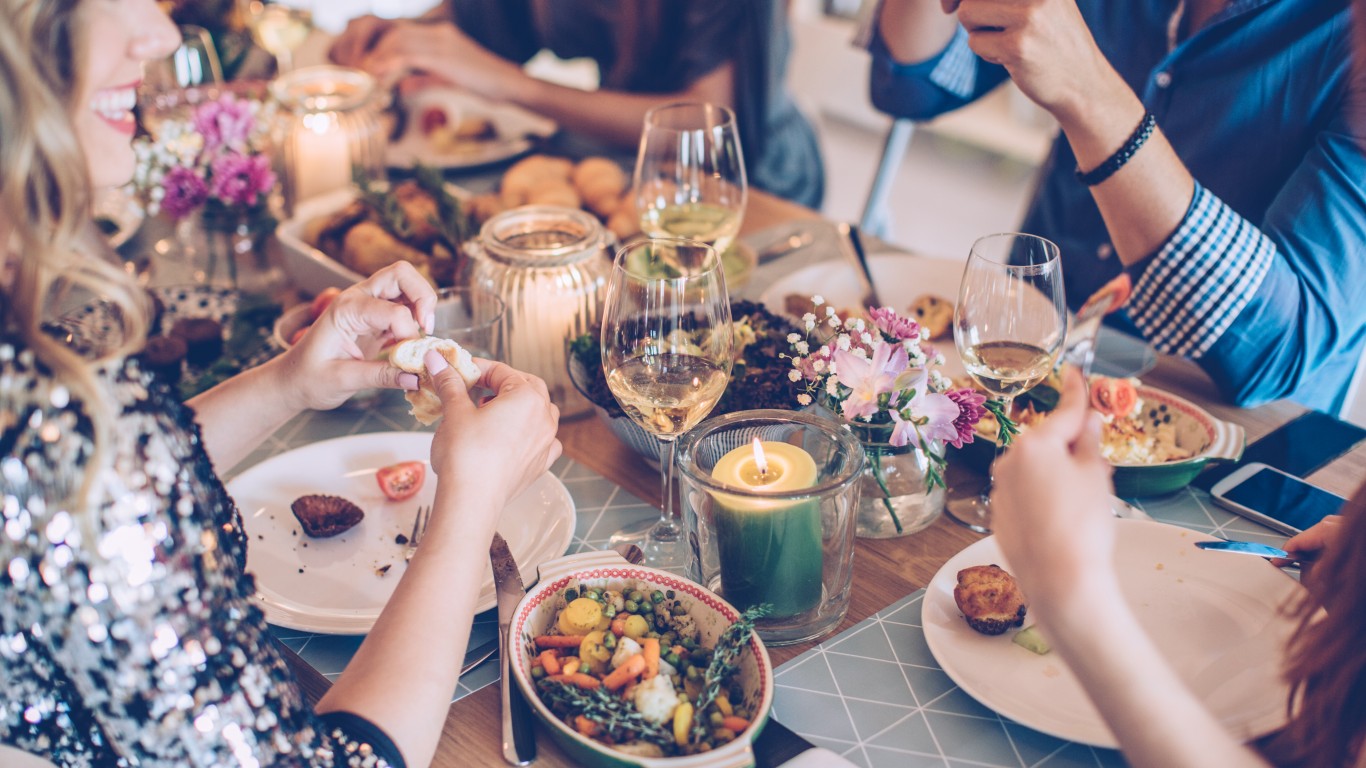
19. Make sure you have enough table settings.
Unless you’re the formal sort, plates, silverware, and glasses don’t have to match, as long as everything is in decent shape. Just make sure you have enough for everyone who’s expected at your table. And don’t forget platters, serving bowls, and serving utensils. You know by now what’s on the menu, so match up every dish with something to put it in. If you come up short, you’ve still got time to buy, rent, or borrow what you need.
[in-text-ad-2]

20. Make sure you have enough chairs
At large Thanksgiving meals, sometimes somebody ends up sitting on the couch with a plate of turkey on his or her lap. If you have a small or informal household, maybe that’s okay (as long as that couch-sitter isn’t on the couch alone), but most hosts will want everyone at the table (or tables), and they all need something to sit on. Rec-center-style folding chairs are okay if necessary, but remember too that Thanksgiving feasts tend to go on for a long time, and you want your guests to be as comfortable as possible.

21. Make sure all the chairs will fit at your table
You’ve counted guests and counted chairs. Now try putting all of the latter around the table to make sure they fit — and not just barely fit but fit comfortably because nobody wants to be jabbed by an elbow every time a neighbor cuts a bite of turkey or reaches for the cranberry sauce.
[in-text-ad]

22. Rent tableware and chairs if necessary
If you come up short with glasses, plates, chairs, even tables, consider getting in touch with nearby family, friends, or neighbors. If your support network can’t provide, try a party rental company — but do so as soon as possible, as there’s a lot of demand for these items around the holidays.

23. Make room in your refrigerator and freezer
The timing for this step will depend on how soon your turkey will arrive and how far in advance you plan to do your other shopping. Turkeys are huge and need plenty of space in the refrigerator. You might also need extra room in the freezer if you’re preparing certain foods ahead of time (see below). This might be a good time, then, to sort through all those half-finished jars of tired condiments and freezer bags of mysterious forgotten leftovers and toss them out.

24. Choose and buy beverages, alcoholic and otherwise
Whether you plan to serve spiked punch, an array of cocktails, autumnal beers, or turkey-friendly wines — or all of the above — now’s the time to figure out what’s on the drinks list. You’ll also need to compute how much of everything you’ll need and where to buy it at the best price. And don’t forget plenty of non-alcoholic beverages, too — plain and sparkling water, fruit juices, sodas, tea and coffee.
[in-text-ad-2]

25. Make and freeze pie crusts
This is one step that will save you a lot of time (and oven space) on the big day itself. Pie crusts freeze well, so make them ahead of time, wrap them well, and stash them in sealed freezer bags next to the ice cubes and the Ben and Jerry’s. (Nobody will know, by the way, if you just buy premade crusts and put those in the freezer instead.)
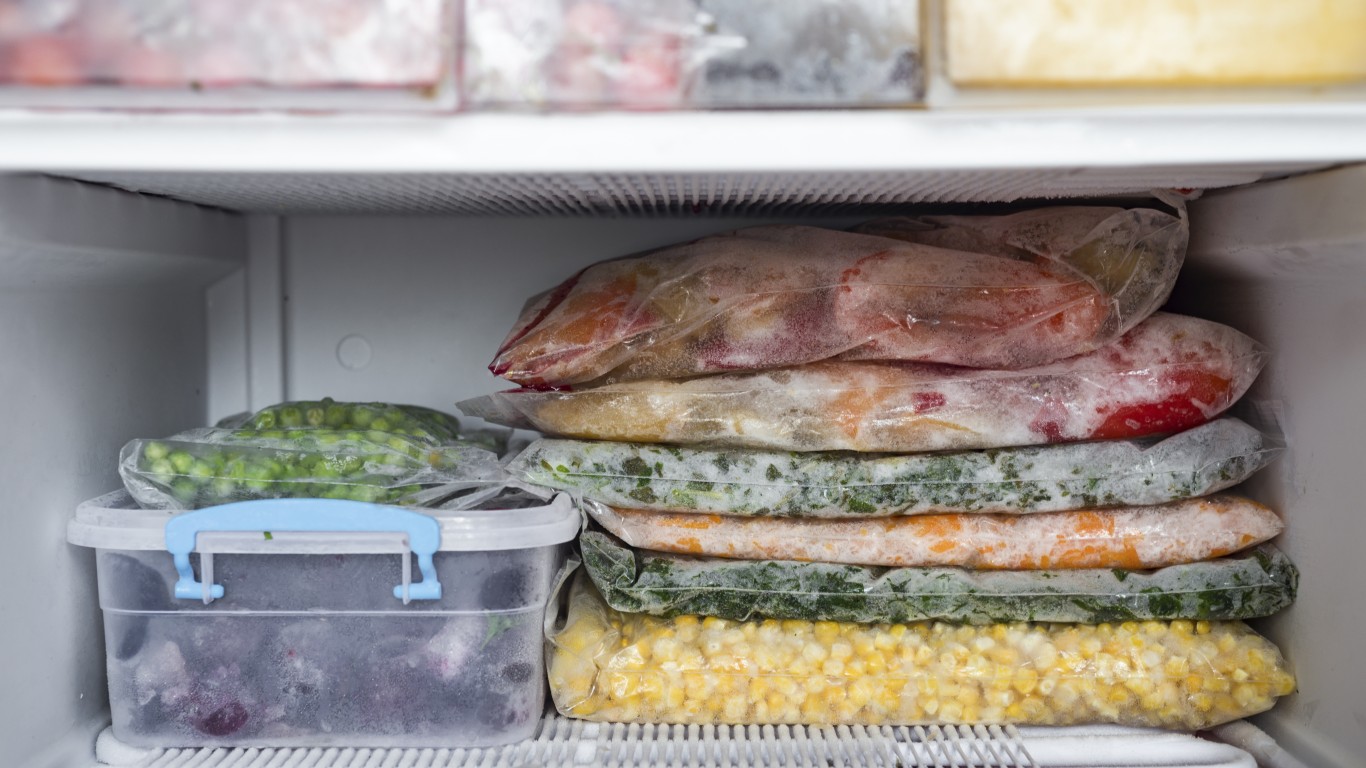
26. Make several non-Thanksgiving meals and freeze them
As turkey day approaches, your refrigerator will fill up with ingredients and finished dishes reserved for the holiday — and your days will fill up with preparations. Relieve the pressure — and discourage family members from digging into the Thanksgiving goods — by making up some easy-to-freeze meals ahead of time (casseroles, meatloaf, lasagna, etc.) and freezing them for daily use in the days just before the holiday.
[in-text-ad]

27. Make sure you have plenty of plastic containers and sturdy baggies
You’ve already ensured that you’ve got enough vessels in which to cook and serve your meal, but remember the aftermath. Chances are you’ll want to send some of your guests home with leftovers, and/or keep some for yourself, so you’ll need to have plenty of plastic containers, both solid and soft, to hold them.

28. Make plans to keep the kids amused
If youngsters are part of the guest list, you’ll likely want to give them their own table. They’ll also need their own beverages, of course, and if they’re particularly young or picky, they might be happier with a cheese quesadilla or a PB&J than with turkey, yams, and Brussels sprouts. But the menu is only part of it. Chances are they’ll eat and run — around the house. Set up video games or other amusements for them if possible and let them know that it’s fine for them to excuse themselves and go have fun after they’ve eaten. Don’t worry: They’ll be back when it’s time for the pumpkin pie.

29. Give your place a thorough autumn cleaning
You might want to do this in two stages — a thorough once-a-season job three or four weeks before Thanksgiving and then touch-ups as needed the day before or the morning of. Cooking for and hosting a large group of people can leave your place gravy-splattered and wine-stained, so the tidier it is to begin with the better.
[in-text-ad-2]
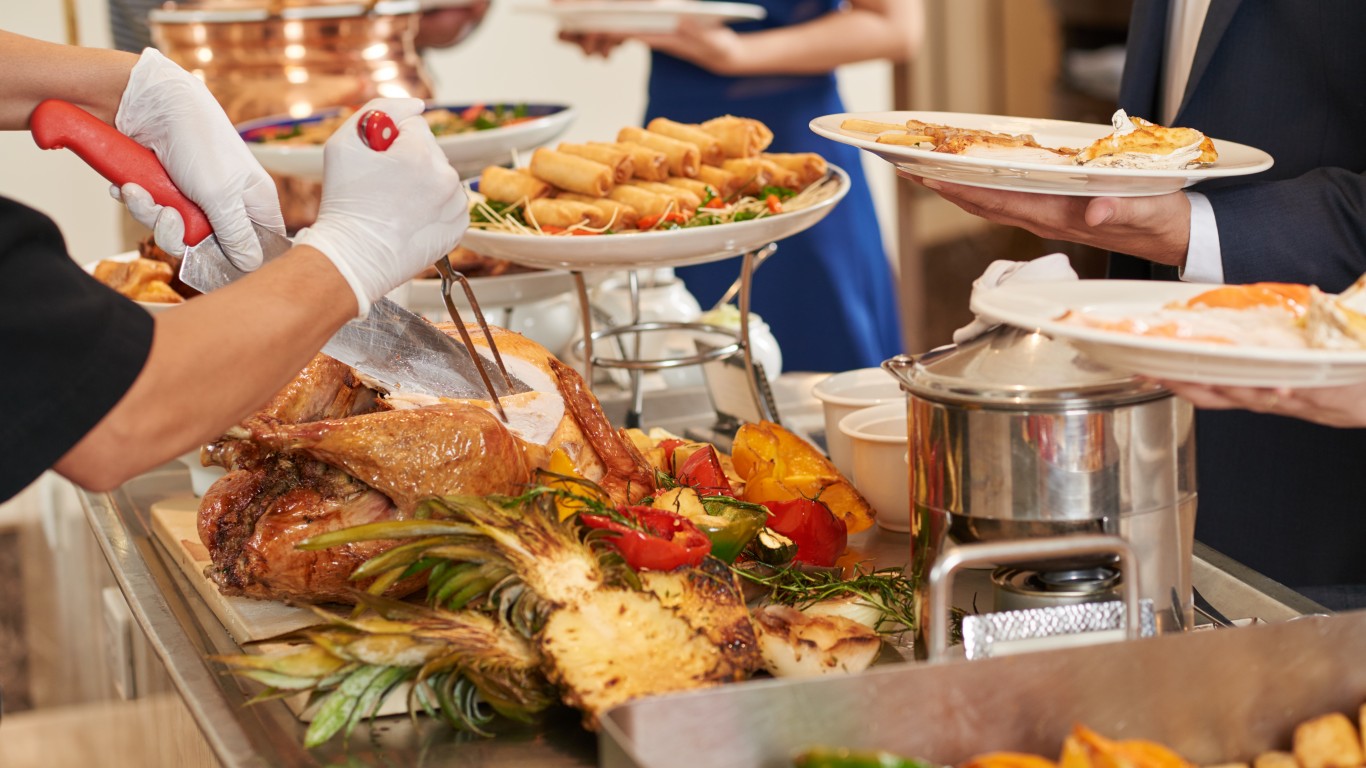
30. Make reservations
Of course, you can always decide not to host Thanksgiving dinner at all, even just for the immediate family, and go out someplace instead. Many restaurants are closed for the holiday, of course, but many also remain open, serving their own versions of the traditional meal. These include everything from diners to elegant restaurants, easily searched online. And if you don’t care for turkey and all the trimmings, many Asian restaurants will oblige with their usual menus. (Sushi for Thanksgiving? Why not?) If you do want to go out for the occasion, though, reserve a table as soon as possible, as you’re probably not the only one with this idea.
Retirement can be daunting, but it doesn’t need to be.
Imagine having an expert in your corner to help you with your financial goals. Someone to help you determine if you’re ahead, behind, or right on track. With SmartAsset, that’s not just a dream—it’s reality. This free tool connects you with pre-screened financial advisors who work in your best interests. It’s quick, it’s easy, so take the leap today and start planning smarter!
Don’t waste another minute; get started right here and help your retirement dreams become a retirement reality.
Thank you for reading! Have some feedback for us?
Contact the 24/7 Wall St. editorial team.